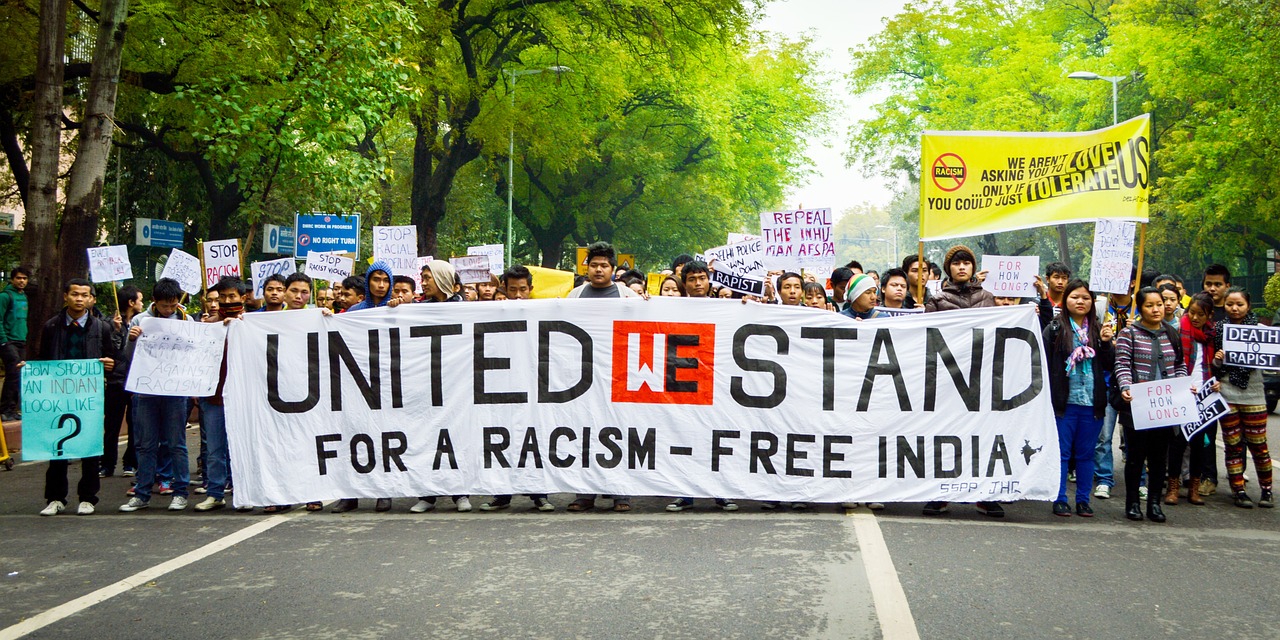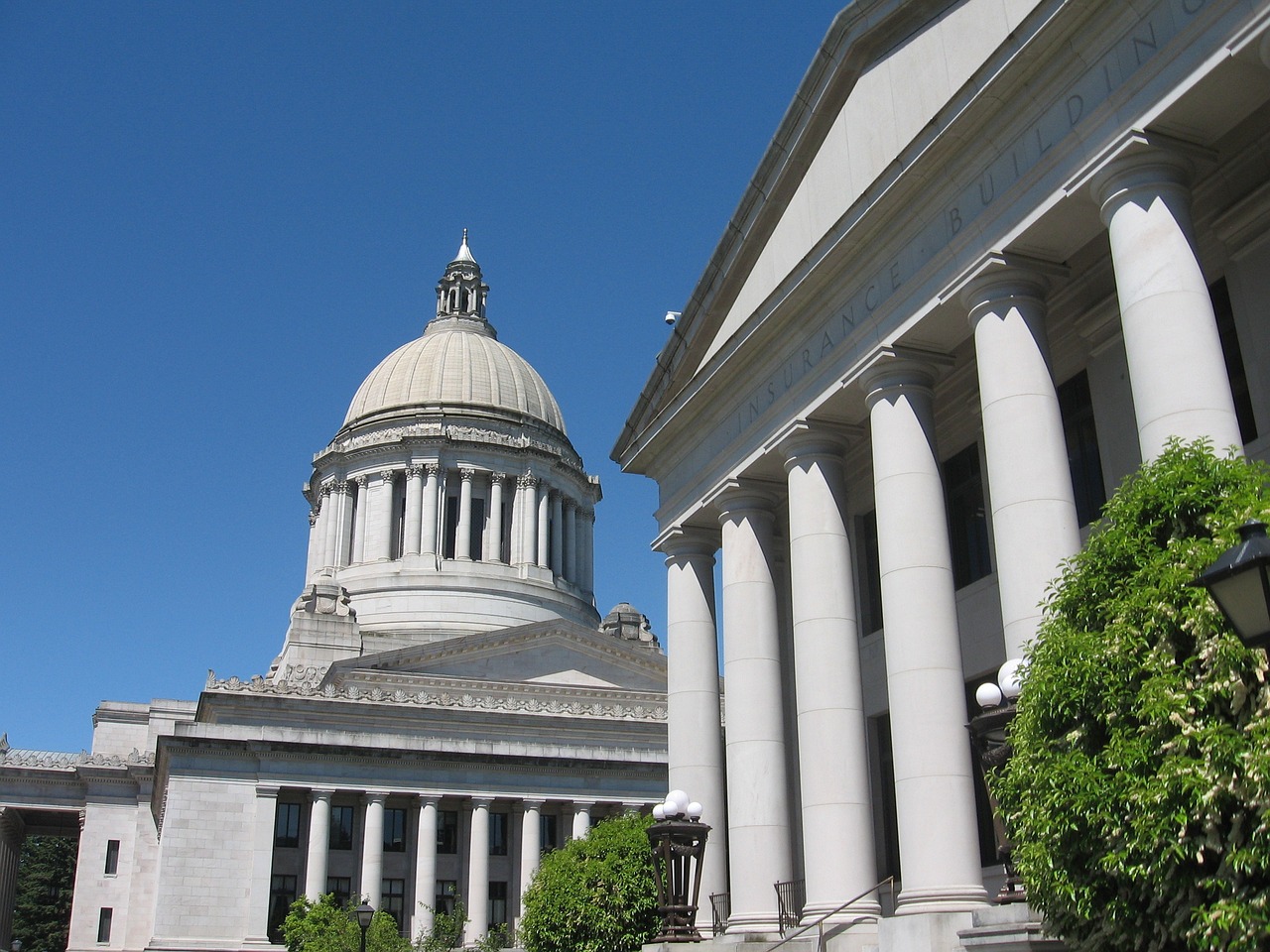Can Philosophy Solve the Crisis of Democracy?
The question of whether philosophy can address the crisis of democracy is not just a theoretical inquiry; it is a pressing concern in today's world. With the rise of authoritarianism, the spread of misinformation, and increasing political polarization, many are left wondering if our democratic systems can withstand the test of time. Philosophy offers a unique lens through which we can examine these challenges, providing us with critical tools to analyze, understand, and ultimately strengthen our democratic practices.
At its core, philosophy encourages us to question the status quo, to dig deeper into the principles that govern our society. It invites us to engage in thoughtful discourse, fostering an environment where ideas can be exchanged freely. In this light, philosophy isn't just an academic pursuit; it is a vital component of civic engagement. By promoting critical thinking and ethical reasoning, philosophy can empower citizens to become more informed and active participants in their democracies.
Imagine a society where individuals are not just passive consumers of information but active seekers of truth. This transformation can occur when philosophical inquiry is integrated into public life. When citizens engage with philosophical concepts, they develop a deeper understanding of their rights and responsibilities within a democratic framework. They learn to navigate complex issues, weigh competing values, and appreciate diverse perspectives, ultimately leading to a more robust and resilient democracy.
Moreover, philosophy can help us grapple with the ethical dilemmas that arise in democratic governance. It challenges us to consider questions such as: What is justice? How do we balance individual rights with the common good? What does it mean to be a responsible citizen? These questions are not merely academic; they are essential for the functioning of a healthy democracy. By engaging with these philosophical inquiries, we can cultivate a more thoughtful and engaged electorate, capable of addressing the challenges we face today.
As we delve deeper into the interplay between philosophy and democracy, we must also recognize the potential pitfalls. Not all philosophical discourse leads to constructive outcomes; sometimes, it can exacerbate divisions rather than heal them. However, by fostering a culture of open dialogue and mutual respect, we can harness the power of philosophy to bridge gaps and promote understanding among diverse groups. This is especially crucial in an era marked by polarization and conflict.
In conclusion, the intersection of philosophy and democracy is rich with potential. By embracing philosophical inquiry, we can enhance civic engagement, promote critical thinking, and address the pressing challenges facing our democratic institutions. As we move forward, let us not underestimate the role of philosophy in shaping the future of democracy. It is not merely a tool for understanding our past; it is a beacon guiding us toward a more equitable and just society.
- How can philosophy improve civic engagement? Philosophy encourages critical thinking and ethical reasoning, which can empower citizens to participate more actively in democratic processes.
- What are the main challenges to democracy today? Key challenges include misinformation, political polarization, and widespread apathy among voters.
- Can philosophical discussions help bridge political divides? Yes, fostering open dialogue around philosophical concepts can promote understanding and reduce polarization.

The Role of Philosophy in Democracy
Philosophy has long been the bedrock of democratic thought, shaping the very values that underpin our political systems. But what does this mean in practical terms? At its core, philosophy encourages us to ask the hard questions—questions about justice, rights, and the common good. It serves as a lens through which we can examine the principles of democracy, allowing us to better understand the complexities of governance and civic responsibility.
One of the most significant contributions of philosophy to democracy is the promotion of critical thinking. In a world increasingly filled with noise and distraction, the ability to think critically about political issues is crucial. This means not just accepting information at face value but questioning its origins, motives, and implications. Think of it as sharpening your mental tools; a well-honed intellect can cut through the fog of misinformation and political rhetoric, leading to more informed and engaged citizens.
Moreover, philosophical inquiry fosters a culture of open dialogue and debate. In a democracy, it's essential that citizens feel empowered to express their opinions and challenge prevailing norms. When philosophical principles are applied, they encourage discussion that is not only respectful but also constructive. This can lead to a deeper understanding of differing viewpoints, which is vital for a healthy democratic process. After all, democracy is not just about winning elections; it's about creating an environment where diverse voices can be heard and valued.
In addition, philosophy provides a framework for understanding ethical governance. What does it mean to lead justly? How should leaders balance individual rights with the common good? These are questions that philosophers have grappled with for centuries. By engaging with these ideas, we can hold our leaders accountable and demand that they act in ways that reflect democratic ideals. This ethical lens is crucial in ensuring that democracy does not devolve into tyranny or populism.
To illustrate the connection between philosophy and democratic values, consider the following table that outlines key philosophical principles and their democratic implications:
| Philosophical Principle | Democratic Implication |
|---|---|
| Justice | Fair distribution of resources and opportunities for all citizens. |
| Liberty | Protection of individual rights against governmental overreach. |
| Equality | Ensuring equal participation and representation in political processes. |
| Solidarity | Fostering a sense of community and shared responsibility among citizens. |
In conclusion, the role of philosophy in democracy is multifaceted and deeply intertwined. It not only provides the tools for critical analysis and ethical reasoning but also cultivates a culture of dialogue and respect for diverse perspectives. As we navigate the complexities of modern democratic challenges, engaging with philosophical ideas can empower us to build a more robust and resilient civic society. So, the next time you find yourself in a political discussion, remember: philosophy isn't just for the ivory tower; it's a vital part of our democratic fabric.
- How does philosophy influence democratic values?
Philosophy shapes the fundamental concepts of justice, liberty, and equality, which are essential for a functioning democracy. - Can philosophy help combat misinformation?
Yes, by promoting critical thinking and ethical reasoning, philosophy encourages individuals to question sources and seek truth in their political discourse. - What role does dialogue play in democracy?
Dialogue fosters understanding and respect among differing viewpoints, which is crucial for a healthy democratic process.

Key Philosophical Theories Relevant to Democracy
When we dive into the world of democracy, it's like peeling back the layers of an onion—each layer reveals more about how we govern and engage with one another. Various philosophical theories provide essential frameworks that help us understand the intricate workings of democratic systems. Among these theories, liberalism, republicanism, and deliberative democracy stand out as cornerstones that shape our political landscape.
Liberalism is often seen as the champion of individual rights and freedoms. At its core, liberalism advocates for the protection of personal liberties and the idea that individuals should have the autonomy to make choices about their lives without undue interference from the state. This philosophy emphasizes the importance of a government that is accountable to the people, ensuring that each citizen's voice is heard and respected. In a democratic context, liberalism supports the notion that a well-functioning democracy is one where rights are safeguarded, and everyone has equal access to participate in the political process.
On the other hand, republicanism shifts the focus from individual rights to the common good. This theory posits that democracy is not just about individual freedoms but also about the responsibilities we share as members of a community. Republicanism encourages civic virtue and active participation, suggesting that a healthy democracy thrives when citizens engage in public life, make informed decisions, and contribute to the welfare of their community. In this sense, republicanism can serve as a counterbalance to the potential excesses of liberalism, reminding us that our actions have implications beyond our personal interests.
Then we have deliberative democracy, which emphasizes the importance of discussion and reasoned debate in the democratic process. This theory argues that democracy is most effective when citizens engage in thoughtful dialogue, weighing different perspectives and arriving at decisions collectively. Deliberative democracy encourages a culture of listening and understanding, where the focus is on reaching consensus rather than merely winning arguments. This approach can help mitigate the challenges of political polarization, fostering a more inclusive and participatory democratic environment.
These philosophical theories are not just abstract concepts; they have real-world implications that can shape our democratic practices. For instance, when we consider the balance between individual rights and the common good, we are forced to confront tough questions about policy-making and governance. How do we ensure that the rights of minorities are protected while also promoting the welfare of the majority? This tension is at the heart of many political debates today.
Moreover, the principles of deliberative democracy can be applied in various contexts, from local town halls to national elections. By encouraging open dialogues and fostering a culture of respect for differing opinions, we can create a more engaged citizenry that is better equipped to tackle the challenges facing our democracy.
In summary, the interplay between these philosophical theories provides a rich tapestry of ideas that can help us navigate the complexities of democratic governance. Understanding liberalism, republicanism, and deliberative democracy not only enhances our appreciation for the democratic process but also equips us with the tools necessary to engage meaningfully in our political communities.

Libertarianism and Individual Rights
Libertarianism stands as a beacon of individual freedom in the political landscape, emphasizing the importance of personal liberties and minimal state intervention. At its core, this philosophy argues that each person has the right to live their life as they choose, so long as they do not infringe on the rights of others. Imagine a world where your choices are not dictated by government regulations but rather by your own values and preferences. This is the essence of libertarian thought, which champions the idea that individuals are best equipped to make decisions about their own lives.
In a democratic society, the balance between individual rights and collective responsibility is crucial. Libertarians advocate for a system where personal freedoms are prioritized, leading to a society that thrives on innovation and diversity of thought. They believe that when individuals are free to pursue their interests, they contribute to the overall well-being of society. This perspective is particularly relevant today as we navigate complex social issues where the role of government often becomes a matter of heated debate.
However, the libertarian emphasis on individual rights raises important questions about the limits of personal freedom. For instance, how do we ensure that one person's freedom does not encroach upon another's? This dilemma is where philosophical inquiry becomes essential. Libertarians argue for a framework that respects individual choices while recognizing the need for some level of governance to maintain order and protect rights. This delicate balance is often illustrated through the following principles:
- Non-Aggression Principle: The idea that aggression against others is inherently wrong, and individuals should resolve disputes peacefully.
- Self-Ownership: The belief that individuals own themselves and have the right to control their own bodies and lives.
- Free Markets: The conviction that voluntary exchanges in a free market lead to prosperity and innovation.
Libertarianism's impact on democratic ideals is profound. It challenges the notion that government should play an active role in the lives of citizens, arguing instead for a minimalist approach. This philosophy encourages individuals to engage in their communities, advocating for policies that enhance personal freedoms. In this way, libertarianism not only defends individual rights but also fosters a sense of civic responsibility, urging citizens to take an active role in shaping their own lives and the society around them.
As we reflect on the implications of libertarianism in contemporary democracy, it becomes clear that while individual rights are paramount, a healthy dialogue about the role of government is essential. This conversation is not just about the limits of state power but also about how we can create a society that respects personal freedoms while ensuring that the rights of all individuals are protected. In doing so, we can work towards a more inclusive and vibrant democratic process that honors the principles of liberty and justice for everyone.
- What is libertarianism? Libertarianism is a political philosophy that emphasizes individual freedom, minimal government intervention, and the protection of personal rights.
- How does libertarianism relate to democracy? Libertarianism advocates for a democratic system that prioritizes individual liberties while maintaining a balance with collective responsibilities.
- What are the criticisms of libertarianism? Critics argue that libertarianism can lead to social inequality and neglect of public goods, as it prioritizes individual rights over communal needs.

Communitarianism and the Common Good
Communitarianism is a philosophical perspective that emphasizes the importance of community values and social cohesion in shaping individual identities and democratic practices. Unlike more individualistic philosophies, communitarianism argues that our sense of self is deeply intertwined with the communities we belong to. This idea resonates particularly well in contemporary discussions about the common good, which refers to the benefits or interests shared by all members of a community. In a world that often feels fragmented and polarized, communitarianism offers a refreshing lens through which to view our collective responsibilities.
At its core, communitarianism posits that individual rights should be balanced with the needs and values of the community. This balance is crucial for fostering a sense of belonging and mutual responsibility among citizens. When individuals see themselves as part of a larger whole, they are more likely to engage in civic activities that promote the common good. For instance, community service, local activism, and participation in public dialogues become not just personal choices, but communal obligations that strengthen societal bonds.
Moreover, the principles of communitarianism can be instrumental in addressing some of the most pressing challenges facing democracies today. By focusing on shared values and the common good, communities can work together to tackle issues such as inequality, environmental degradation, and social justice. When citizens prioritize collective well-being over personal gain, they create a more inclusive and resilient democratic framework.
To illustrate the impact of communitarianism on democracy, consider the following key aspects:
- Shared Values: Communitarianism encourages dialogue about the values that unite us, fostering a deeper understanding of diverse perspectives.
- Social Responsibility: Emphasizing the common good helps individuals recognize their role in the community, promoting a culture of care and support.
- Active Participation: By nurturing a sense of belonging, communitarianism motivates citizens to engage in civic life, enhancing democratic practices.
In essence, communitarianism challenges us to rethink our approach to democracy. It invites us to ask: How can we cultivate a sense of community that transcends individual interests? How can we ensure that our democratic institutions reflect the values and needs of all citizens? By embracing communitarian principles, we can work towards a more engaged citizenry that prioritizes the common good, ultimately strengthening the very fabric of democracy itself.
Q: What is communitarianism?
A: Communitarianism is a philosophical perspective that emphasizes the importance of community values and social cohesion in shaping individual identities and democratic practices.
Q: How does communitarianism relate to democracy?
A: Communitarianism advocates for a balance between individual rights and community needs, fostering civic engagement and a sense of belonging among citizens, which are essential for a healthy democracy.
Q: What are the benefits of focusing on the common good?
A: Focusing on the common good encourages collaboration, social responsibility, and active participation in civic life, leading to stronger communities and more resilient democratic institutions.
Q: How can individuals contribute to the common good?
A: Individuals can contribute to the common good by engaging in community service, participating in local activism, and fostering dialogue about shared values and goals within their communities.

Challenges to Democratic Practices
Democracy, while a noble ideal, is not without its significant hurdles. In today's fast-paced world, the challenges that threaten democratic practices are as complex as they are varied. From rampant political polarization to the insidious spread of misinformation, these issues can weaken the very foundations of democratic engagement. It’s like trying to build a house on a shaky foundation; no matter how beautiful the structure is, it will eventually crumble if the ground beneath it is unstable. So, what are these challenges, and how can we address them? Let’s dive deeper.
One of the most pressing challenges is the issue of polarization. In recent years, we’ve seen an alarming trend where individuals are increasingly divided along political lines. This polarization can lead to an “us vs. them” mentality, where compromise and dialogue become nearly impossible. The result? A fragmented society where democratic processes suffer, and citizens feel disenfranchised. Imagine a community where neighbors can no longer have a civil discussion about differing views; instead, they retreat into echo chambers, reinforcing their biases and alienating others. This is the reality many democracies face today.
Another significant challenge is the rise of misinformation. With the advent of social media, information spreads faster than ever, but so does false information. Misinformation can lead to poor decision-making among the electorate, as people may base their choices on inaccurate or misleading information. This phenomenon not only undermines informed citizenship but also erodes trust in democratic institutions. Think of it like a game of telephone, where the original message gets distorted as it passes through various hands. By the time it reaches the last person, it’s often unrecognizable and can lead to disastrous consequences.
Moreover, apathy poses a significant threat to democratic practices. Many citizens feel disconnected from the political process, believing that their voices don’t matter or that their votes won’t make a difference. This disengagement can lead to lower voter turnout, which in turn skews representation in government. It’s akin to a sports team where only a handful of players show up for the game; the outcome is likely to be unfavorable, and the spirit of teamwork is lost. Therefore, fostering a sense of civic duty and encouraging participation is crucial for revitalizing democracy.
Addressing these challenges requires a multifaceted approach. Philosophical discourse can play a pivotal role in encouraging dialogue and understanding among diverse viewpoints. By promoting critical thinking and ethical reasoning, we can inspire citizens to engage meaningfully with one another, breaking down barriers that divide us. For instance, community forums that encourage open discussions can help bridge gaps between polarized groups, fostering a culture of respect and understanding.
In conclusion, while the challenges to democratic practices are daunting, they are not insurmountable. By leveraging philosophical insights and encouraging active civic engagement, we can work towards a more robust democracy. It’s a journey that requires commitment from each of us, but the rewards of a healthy, engaged democratic society are well worth the effort.
- What is political polarization? Political polarization refers to the growing divide between different political ideologies, resulting in a lack of compromise and increased hostility between opposing groups.
- How does misinformation affect democracy? Misinformation can mislead voters, distort public opinion, and undermine trust in democratic institutions, making it difficult for citizens to make informed decisions.
- What can be done to combat apathy in democracy? Encouraging civic education, promoting community engagement, and fostering open dialogue can help combat apathy and inspire individuals to participate in the democratic process.

The Impact of Misinformation
Misinformation is like a virus in the bloodstream of democracy, spreading rapidly and infecting the minds of citizens. In today’s digital age, where information flows freely and abundantly, distinguishing between fact and fiction has become increasingly challenging. The consequences of this misinformation can be dire, leading to a misinformed electorate that struggles to make sound decisions. As we navigate through a sea of data, how can we ensure that our understanding of the truth remains intact?
At its core, misinformation undermines the very foundation of democratic engagement. When citizens are bombarded with false information, their ability to make informed choices is severely compromised. This not only affects individual decision-making but also erodes trust in democratic institutions. Imagine trying to build a house on a shaky foundation; without a solid base of truth, the structure of democracy becomes unstable. The implications are profound, as misinformation can lead to voter apathy, increased polarization, and a general sense of disillusionment with the democratic process.
Philosophically, the concept of truth is paramount in the context of democracy. The ancient Greeks grappled with the nature of truth, recognizing its importance in public discourse. In modern times, the philosophical implications of misinformation raise critical questions: What is the nature of knowledge? How do we discern truth from falsehood? These questions are not merely academic; they have practical ramifications for how we engage in political dialogue. The challenge lies in fostering a culture of critical thinking that empowers individuals to question the information they consume.
To combat the spread of misinformation, we must first acknowledge its existence and understand its mechanisms. Misinformation often thrives in environments where emotional appeals overshadow rational discourse. This is where philosophical inquiry becomes essential. By promoting critical thinking and encouraging individuals to analyze the sources and motivations behind the information they encounter, we can begin to build a more informed citizenry. For example, integrating philosophical discussions into educational curricula can equip future generations with the tools they need to navigate complex information landscapes.
Furthermore, we can leverage technology to our advantage. Social media platforms, while often breeding grounds for misinformation, can also serve as tools for promoting truth. Initiatives aimed at fact-checking and verifying information before it spreads can help mitigate the impact of false narratives. However, this requires a collective effort from tech companies, policymakers, and citizens alike. The responsibility to discern truth must be shared, and philosophical engagement can guide this process.
In conclusion, the impact of misinformation on democracy is profound and multifaceted. By fostering a culture of critical thinking and emphasizing the importance of truth, we can strengthen democratic engagement and resilience. As we face an ever-evolving information landscape, philosophy offers a beacon of hope, guiding us toward a more informed and engaged citizenry.
- What is misinformation? Misinformation refers to false or misleading information that is spread regardless of intent to deceive.
- How does misinformation affect democracy? It undermines informed decision-making, erodes trust in institutions, and can lead to increased polarization and apathy among voters.
- What can be done to combat misinformation? Promoting critical thinking, fact-checking initiatives, and fostering open dialogue are essential strategies to combat misinformation.
- Why is truth important in democratic discourse? Truth is vital for informed decision-making, fostering trust among citizens, and ensuring the integrity of democratic processes.

Addressing Political Polarization
In today's political landscape, polarization has become a formidable challenge to the very fabric of democracy. It’s almost as if we’re living in two separate realities, where each side views the other with suspicion and disdain. This divide not only hampers productive dialogue but also threatens the stability of democratic institutions. So, how can philosophy help us navigate these troubled waters? The answer lies in fostering a culture of dialogue and understanding, where philosophical principles can serve as a bridge over the chasm of division.
At its core, addressing political polarization requires us to engage in meaningful conversations that transcend mere political affiliation. Philosophy teaches us the importance of critical thinking and the value of questioning our own beliefs. By encouraging individuals to reflect on their values and the reasons behind them, we can cultivate a more thoughtful citizenry. This doesn’t mean we should all agree; rather, we should learn to appreciate the nuances of differing perspectives. Imagine a vibrant marketplace of ideas, where each thought is like a unique product on display. Instead of shunning the “other,” we should be examining and discussing these ideas, allowing them to enrich our understanding.
One effective approach to bridging the gap is through the practice of deliberative democracy. This philosophical framework emphasizes the importance of reasoned discussion and collective decision-making. By creating spaces where people can come together to discuss contentious issues, we can foster an environment of mutual respect. For instance, community forums or town hall meetings can serve as platforms for such discussions, allowing citizens to voice their opinions while also listening to others. These gatherings can be structured to encourage respectful dialogue, where participants are reminded to focus on issues rather than personal attacks.
Furthermore, we must also consider the role of education in combating polarization. By integrating philosophical inquiry into educational curricula, we can equip future generations with the tools they need to engage in constructive debate. Schools can implement programs that encourage students to explore diverse viewpoints, analyze arguments critically, and engage in respectful discourse. This foundational skill set not only prepares young people for active citizenship but also fosters a culture of empathy and understanding.
In addition to educational initiatives, we can leverage technology to promote dialogue. Social media platforms, while often criticized for exacerbating polarization, can also be harnessed to create spaces for discussion. Imagine online forums where users are encouraged to engage with opposing viewpoints in a respectful manner. By utilizing features that promote civil discourse—such as moderation tools and prompts for constructive feedback—we can transform these digital spaces into arenas for philosophical engagement.
Ultimately, addressing political polarization is not a quick fix; it requires a sustained effort from individuals, communities, and institutions alike. By embracing philosophical principles of dialogue, critical thinking, and empathy, we can begin to mend the fractures within our democratic society. It’s about moving from a mindset of “us versus them” to one of “we are all in this together.” In doing so, we can create a more resilient democracy, one that thrives on diversity of thought rather than succumbing to division.
- What is political polarization? Political polarization refers to the growing divide between political parties or ideologies, where individuals become increasingly entrenched in their beliefs, often leading to hostility towards opposing views.
- How can philosophy help reduce polarization? Philosophy encourages critical thinking and respectful dialogue, allowing individuals to engage with diverse perspectives and fostering understanding rather than division.
- What role does education play in addressing polarization? Education can equip individuals with the skills needed for constructive debate and understanding, promoting empathy and critical analysis of differing viewpoints.
- Can technology be used to promote civil discourse? Yes, technology can create platforms for respectful dialogue, provided that features are in place to encourage constructive engagement and discourage hostility.

Philosophy as a Tool for Civic Engagement
When we think about civic engagement, it often conjures images of voting booths, town hall meetings, and community events. But what if I told you that at the heart of these activities lies a potent tool that can transform mere participation into meaningful dialogue? That tool is philosophy. Philosophy encourages us to question, to reflect, and to engage with one another in ways that go beyond the surface. It invites us to explore our beliefs and values, fostering a deeper understanding of the world around us.
Imagine walking into a community forum where everyone is eager to share their opinions. Now picture that same forum where the participants are equipped with the skills to not only express their thoughts but to also listen actively and challenge ideas constructively. This is the power of philosophical inquiry. By promoting critical thinking and ethical reasoning, philosophy can elevate civic discourse from mere debate to a rich exchange of ideas. It encourages us to ask questions like, “What do we value as a community?” and “How can our differences contribute to a more inclusive society?”
One of the most significant ways philosophy can enhance civic engagement is through the development of critical thinking skills. These skills allow individuals to analyze arguments, identify biases, and understand the implications of various viewpoints. When citizens are equipped with these tools, they become more informed participants in the democratic process. They can engage in discussions about complex issues—such as healthcare, education, and climate change—armed with the ability to dissect arguments and advocate for their beliefs effectively.
Additionally, philosophy fosters a sense of ethical responsibility among citizens. When people engage with philosophical concepts, they begin to understand the moral dimensions of their actions and decisions. This awareness can lead to a more engaged and responsible citizenry, where individuals recognize their role in shaping the community and the importance of considering the common good. For instance, discussions about social justice or environmental ethics can inspire citizens to take action, whether through volunteering, advocacy, or simply voting with intention.
Furthermore, integrating philosophical inquiry into public life can help break down the barriers that often separate individuals with differing viewpoints. When we approach conversations with a philosophical mindset, we are more likely to listen to understand rather than to respond. This shift can lead to a more collaborative atmosphere where diverse perspectives are valued. As we navigate the complexities of modern society, fostering dialogue becomes essential in addressing the challenges we face.
In practice, how can we incorporate philosophy into civic engagement? Here are a few strategies:
- Organize community discussions that focus on philosophical questions related to local issues.
- Encourage schools to incorporate philosophical debates into their curricula, promoting critical thinking from a young age.
- Create online platforms for citizens to engage in philosophical discussions about current events, ensuring that voices from all backgrounds are heard.
By embracing philosophy as a tool for civic engagement, we not only enrich our democratic processes but also cultivate a culture of thoughtfulness and reflection. As citizens become more adept at engaging with complex ideas and diverse perspectives, we can hope for a more vibrant and resilient democracy.
Q: How can philosophy improve my participation in community discussions?
A: Philosophy equips you with critical thinking skills, enabling you to analyze arguments, recognize biases, and engage in constructive dialogue.
Q: What are some philosophical topics I can discuss in my community?
A: Topics can range from social justice and environmental ethics to the role of government and individual rights. Choose issues that resonate with your community's values.
Q: Can philosophy help bridge political divides?
A: Yes! By fostering a culture of listening and understanding, philosophical inquiry can help individuals appreciate diverse viewpoints and find common ground.

The Future of Democracy and Philosophy
As we navigate the complexities of the 21st century, the intersection of democracy and philosophy becomes increasingly vital. The future of democracy is not just about political frameworks or electoral processes; it’s about cultivating a culture of critical thinking and ethical reasoning that empowers citizens to engage meaningfully in public discourse. Imagine a society where individuals are not merely voters but informed participants in the democratic process, equipped with the tools to question, analyze, and contribute to the collective good.
Philosophy, with its rich history of exploring fundamental questions about justice, freedom, and the common good, offers a roadmap for addressing the challenges that democracy faces today. It encourages us to reflect on our values and the principles that underpin our democratic institutions. For instance, as we grapple with issues like climate change, social inequality, and technological disruption, philosophical inquiry can guide us in crafting policies that are not only effective but also just and equitable.
Moreover, the rise of digital platforms has transformed how we engage with democracy. Social media, while providing a space for dialogue, has also given rise to echo chambers and misinformation. Here, philosophy can play a crucial role by promoting media literacy and encouraging citizens to question the sources of their information. By fostering a culture of inquisitiveness, we can better navigate the murky waters of digital discourse and ensure that our democratic practices remain robust and resilient.
In envisioning a future where democracy thrives, we must also consider the role of education. Integrating philosophical inquiry into educational curricula can cultivate a generation of critically-minded individuals who understand the importance of civic engagement. Schools and universities can serve as incubators for democratic values, teaching students not only about their rights but also about their responsibilities as citizens. This approach can help bridge the gap between theory and practice, making philosophy accessible and relevant to everyday life.
Ultimately, the future of democracy will hinge on our ability to embrace philosophical discourse as a tool for civic engagement. By encouraging open dialogue and fostering a spirit of collaboration, we can create a more inclusive and participatory democratic process. Philosophy invites us to engage with diverse perspectives and seek common ground, reminding us that while our views may differ, our commitment to a thriving democracy unites us. As we look ahead, let us harness the power of philosophical thought to inspire active participation and resilience in our democratic institutions.
- How can philosophy improve civic engagement?
Philosophy encourages critical thinking and ethical reasoning, which can help citizens engage more meaningfully in public discourse and democratic processes. - What role does education play in the future of democracy?
Education that incorporates philosophical inquiry can cultivate informed citizens who understand their rights and responsibilities, fostering a stronger democratic culture. - How can we combat misinformation in democracy?
By promoting media literacy and encouraging critical questioning of information sources, philosophy can help citizens navigate the complexities of digital discourse. - Why is philosophical discourse important for democracy?
Philosophical discourse promotes open dialogue, understanding, and collaboration, which are essential for a healthy and resilient democratic process.
Frequently Asked Questions
- What is the relationship between philosophy and democracy?
Philosophy and democracy are deeply intertwined. Philosophical principles provide the foundation for democratic values, encouraging critical thinking and informed participation. By exploring ethical reasoning and civic responsibility, philosophy can enhance our understanding of democratic ideals and practices.
- How do philosophical theories influence democratic governance?
Various philosophical theories, such as liberalism, republicanism, and deliberative democracy, offer frameworks for understanding governance. These theories shape how we view individual rights, community values, and the importance of dialogue, impacting how democratic systems function and evolve.
- What role does libertarianism play in democratic ideals?
Libertarianism emphasizes individual freedoms and minimal state intervention, advocating for personal liberty while balancing it with collective responsibility. This perspective influences democratic ideals by promoting the importance of personal choice and autonomy in political decision-making.
- How can communitarianism enhance democratic engagement?
Communitarianism focuses on community values and social cohesion, which can foster a greater sense of belonging among citizens. By prioritizing the common good, this perspective encourages collective action and deeper participation in democratic processes.
- What are the main challenges facing democracy today?
Democracy faces significant challenges such as polarization, misinformation, and civic apathy. These issues threaten the integrity of democratic practices and require philosophical discourse to address and strengthen democratic institutions effectively.
- How does misinformation affect democratic engagement?
Misinformation undermines informed decision-making, which is crucial for a healthy democracy. Philosophical discussions about truth and knowledge can help us navigate these challenges, encouraging critical evaluation of information and promoting a more informed electorate.
- What strategies can address political polarization?
Philosophical approaches that promote dialogue and understanding among diverse political viewpoints can help bridge divides. Encouraging open discussions and empathetic listening can foster a more unified democratic community, reducing polarization.
- How can philosophy enhance civic engagement?
Philosophy can enhance civic engagement by cultivating critical thinking and ethical reasoning. Integrating philosophical inquiry into public life inspires active participation, empowering citizens to engage thoughtfully in democratic processes.
- What is the future role of philosophy in democracy?
As democracy continues to evolve, philosophy will play a crucial role in addressing emerging challenges. By fostering philosophical engagement, we can develop resilient democratic practices that adapt to changing societal needs and values.



















